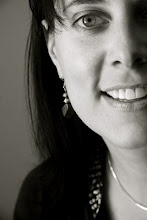A couple weeks ago, I learned a valuable life lesson:
"Don't learn to snowboard at the age of 40."
I took 9 lessons. Ya, you heard me right. NINE lessons. One would think that'd make me an expert on the snow, but, alas, I caught an edge on my 10th time snowboarding and flipped onto my right wrist. It hurt. Hurt because it was fractured in the fall!
(above is a selfie I took after I had it casted, four days after I broke it)
Although, I'm self-deprecating about my clumsiness in sports (I honestly blame 100% of it on my TBI), this probably could have happened to any snowboarder. Wrist injuries are common for boarders (I wish I would've worn wrist guards).
So, that's my story and now for my analogy:
Anyone who's worn a cast can agree when I say that casts stink. And I don't mean stink like "it sucks," I mean stink like "they smell."
Today I Googled "What can I do about a smelly cast?"
This is what the website I found said: "Unfortunately, a cast can start to stink. Often the smell can become quite bad" (the obvious, bad news).
The best way to avoid the stench, it said, is to try hard to not get it stinky in the first place (no moisture or sweat, which means cover the cast when showering, and no hard exercise).
. . .try hard to not get it stinky in the first place . . .
I feel like this advice also works for managing fatigue after TBI. In order to not get so overwhelmingly tired (which happens to me almost daily), try not to get tired in the first place. It seems pretty obvious, but, this is way easier said than done (just like avoiding cast stink is easier said than done) for someone who enjoys being active like I do.
. . .try hard to not get tired in the first place . . .
I need to be better at this.
For example, sometimes I think I work out more than I should because I know exercise is good for my brain health (it's proven through research) and because I have/make time for it. But, sometimes I know I "force" myself to go to the gym so often it makes my brain tired and I don't have enough time for brain recovery so I spend the entire day brain tired . . . and it's very difficult to recover from brain fatigue (it's waaay more intense than the typical my eyes are tired my body is tired feeling).
I'll repeat the main point of this post (which is mostly to remind myself):






